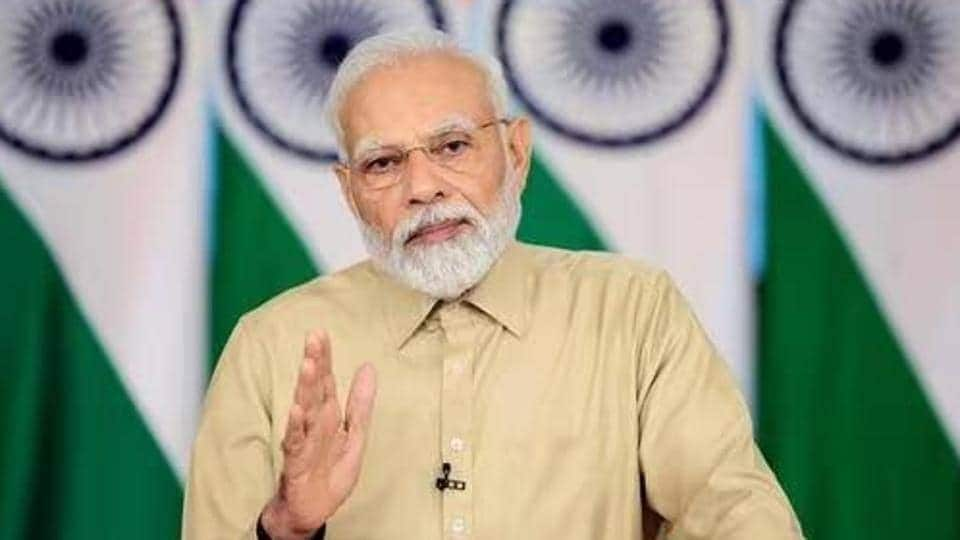Modi coming to Singapore on September 4: Semiconductor deal and new MOUs expected

Indian Prime Minister Narendra Modi’s two-day visit to Singapore starting on September 4 is expected to give “a big thrust” to Singapore-India cooperation in the semiconductor industry. The Indian Ministry of External Affairs (MEA) Secretary East Jaideep Mazumdar said this at a media briefing on September 2.
“Singapore is very well plugged into the global semiconductor ecosystem. It has more than 20 years’ experience in this area. This is an area where we are very keen to get into. And already we are seeing how we can cooperate with Singapore. Singapore is already setting up facilities in India and there will be many areas of semiconductor industry which will be discussed…We expect the visit to really give thrust to this particular area in our cooperation,” he said.
New MOUs expected
Singapore- India relations are poised to take off to an entirely new level of collaboration with several new memorandums of understanding (MOUs) likely to be exchanged during the visit, he added. These could include moves for greater connectivity and green energy.
Mr Modi, who visited Singapore in 2018, is coming at the invitation of Singapore’s new Prime Minister Lawrence Wong and will also meet Singapore President Tharman Shanmugam Ratnam.
India push for semiconductors
India has embarked on an ambitious plan to build an indigenous semiconductor industry. The Indian Cabinet recently approved a proposal to set up a fifth semiconductor unit under the India Semiconductor Mission – in Gujarat – after Mr Modi virtually inaugurated three units in March, including two by Tata. The American chipmaker Micron Technology is also setting up a semiconductor fabrication plant in Gujarat. The approval of the fifth unit under the India Semiconductor Mission brings the total investment to $18.15 billion, says the Hindustan Times.
Singapore interested in green energy and connectivity
While India is keen to tap Singapore’s expertise in semiconductors, “for Singapore, our interest is in energy, green energy, additional sources of food and to build up connectivity, air, and maritime lanes,” Singapore’s Foreign Minister Vivian Balakrishnan told reporters in an interview following the second India-Singapore Ministerial Roundtable (ISMR) discussions in Singapore on August 26.
“India is likely to have tremendous growth in aviation,” said Dr Balakrishnan. “I think they have ordered 1,000 planes which will be delivered over the years. There will be great opportunities in Maintenance, Repair and Overhaul (MRO) and other operations in the years to come. It is another niche area in which Singapore has companies which are competitive globally and there will be opportunities for them.”
India’s interest in semiconductors “also presents opportunities for our companies”, he added.
The Economic Development Board says Singapore supplies 11 per cent of the chips worldwide. The semiconductor sector employs about 35,000 people and accounts for almost 20 per cent of Singapore’s manufacturing output, according to Channel News Asia.
Singapore FDI in India
Singapore is India’s largest trade partner in the Association of South East Asian Nations (Asean) – and the sixth largest worldwide. It is also a leading source of foreign direct investment (FDI) with an investment of $11.77 billion in 2023 alone.
Enjoying this article?
Subscribe to get more stories like this delivered to your inbox.
“Investments have been very large,” said the Indian foreign ministry official Jaideep Mazumdar. “Since 2000 till now, we have an accumulative FDI of $160 billion.”
With India keen to promote trade and investment, Mr Modi will address CEOs in Singapore. “They will hear India’s growth story first hand,” said Mr Mazumdar.
India is the world’s fifth largest economy, where Singapore has invested in infrastructure, technology, manufacturing, real estate and renewable energy, among other sectors.
The recent ministerial roundtable discussions identified “a number of new forward-looking futuristic areas (of cooperation) in digitization, skill, sustainability, health, advanced manufacturing and connectivity”, said Mr Mazumdar. “We are likely to exchange a number of MoUs in these areas in the forthcoming visit of the PM,” he added.
Senoir Editor
